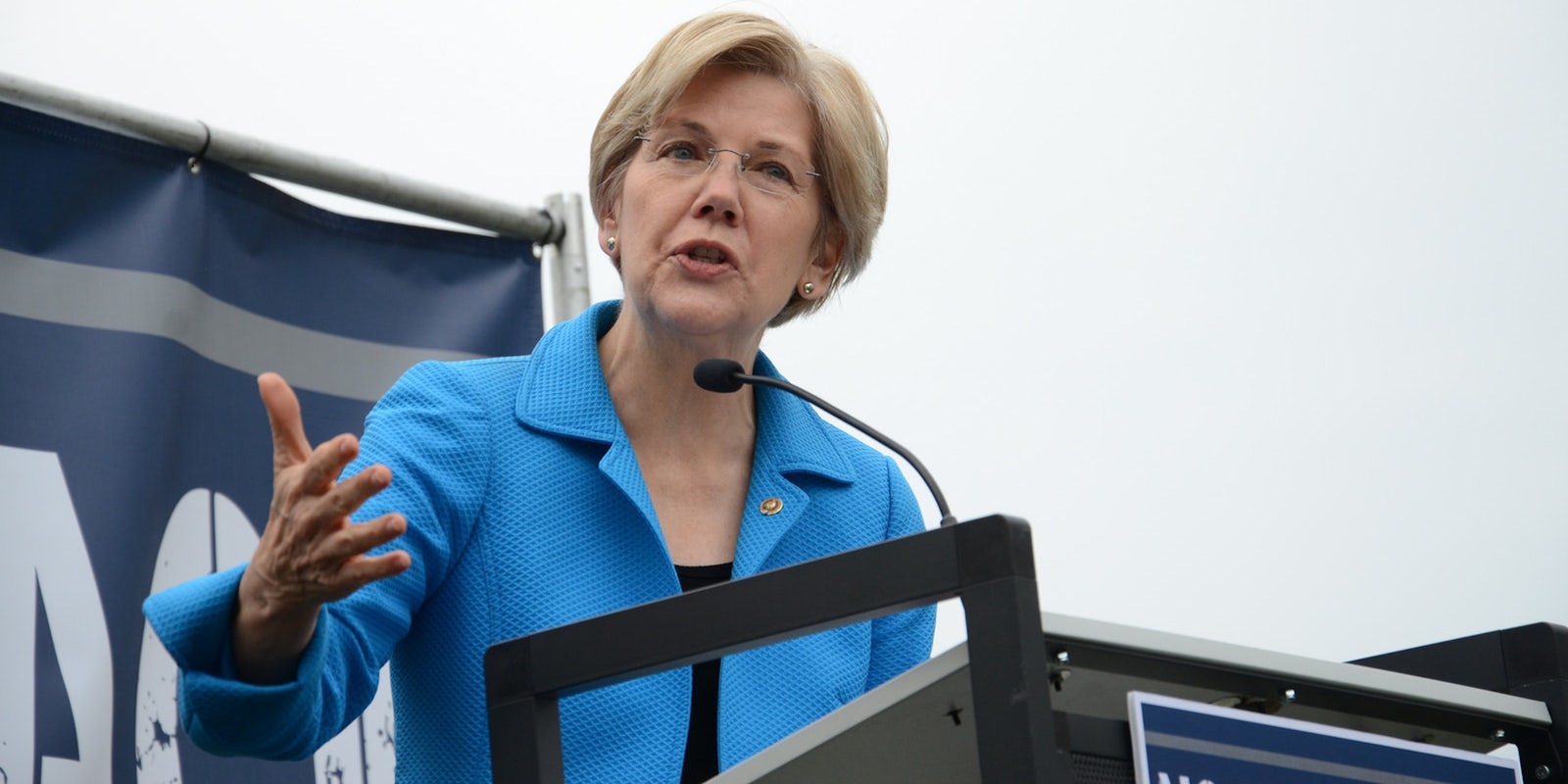Four liberal senators have asked the FCC to study whether Internet service providers are ripping off their customers.
Sens. Bernie Sanders (I-Vt.), Al Franken (D-Minn.), Elizabeth Warren (D-Mass.), and Ed Markey (D-Mass.) wrote a letter to FCC Chairman Tom Wheeler on Thursday, asking for a review of prices by state and ISP and a comparison of costs in rural and urban areas.
“We need healthy competition to foster innovation and ensure fair prices for consumers,” the senators told Wheeler. “At the very least, Americans should be able to understand the price of the product they are buying and what their neighbors are paying for the same service.”
The senators note that part of the FCC’s mandate is to gather pricing information and assess the national reach of broadband Internet. The FCC relied on this authority when it overruled state regulations on municipal broadband, freeing up certain cities to deploy government-run Internet service and close the access gap.
A Dec. 2014 Commerce Department report found that only 37 percent of Americans had at least two options for Internet at speeds of 25 Mbps or higher, and only 9 percent had at least three choices.
In January, the FCC bumped up the minimum speed threshold in the definition of “broadband” Internet to 25 Mbps. ISPs fiercely opposed the move, arguing that they have been working hard to expand broadband access across the country. But consumers have deluged those companies with complaints about access, reliability, and quality of service.
“Given the lack of incentive for companies to provide better quality service and competitive prices,” the senators wrote to Wheeler, “it is no surprise that individuals rank cable and Internet providers last in customer satisfaction when compared to other companies in other industries.”
Sanders, who is seeking the 2016 Democratic presidential nomination, relies heavily on populist campaign rhetoric, and his desire for increased scrutiny of ISPs aligns with that message. He has repeatedly hammered big banks, lobbyists, and other powerful groups for exploiting their access to government officials to the detriment of the country. The telecom companies may be loathed across America, but they enjoy considerable power in Washington, where they have already spent more than $22 million in the first half of 2015.
In a rare victory for consumer groups, a proposed merger between Comcast and Time Warner Cable, the nation’s two largest ISPs, fell apart after the FCC and the Department of Justice (DOJ) expressed concerns about the deal. Critics of the merger argued that it would solidify effective monopolies for both of those companies in various parts of the country.
In addition to a lack of competition, the senators also highlighted the ISPs’ practice of adding vague fees to their customers’ bills. They argued that “the lack of transparency in pricing” was detrimental to consumers. The FCC took action in May to stop wireless companies from adding fraudulent charges to customer bills, fining Verizon Wireless and Sprint a combined $158 million for the practice, known as “cramming.”
“The Commission’s collection of pricing information,” the senators wrote, “is critical to upholding its mission to protect consumers, and promote competition, and deploy broadband across America.”
Photo via AFGE/Flickr (CC BY 2.0)
